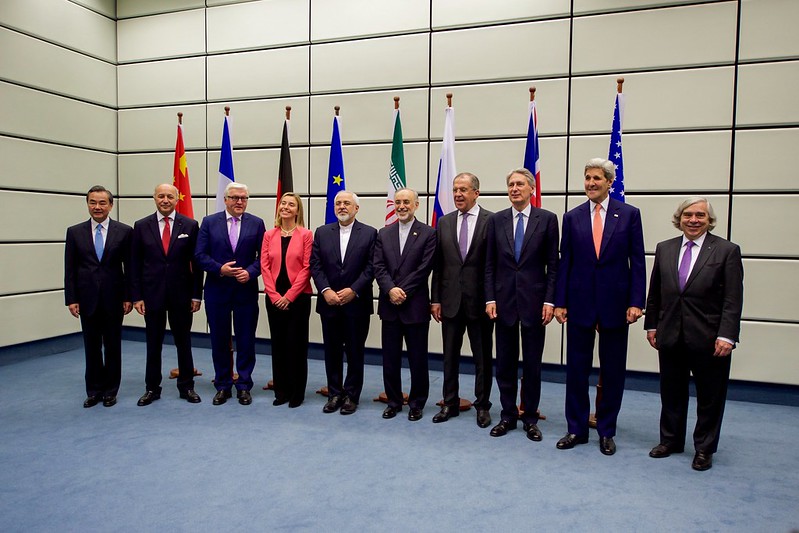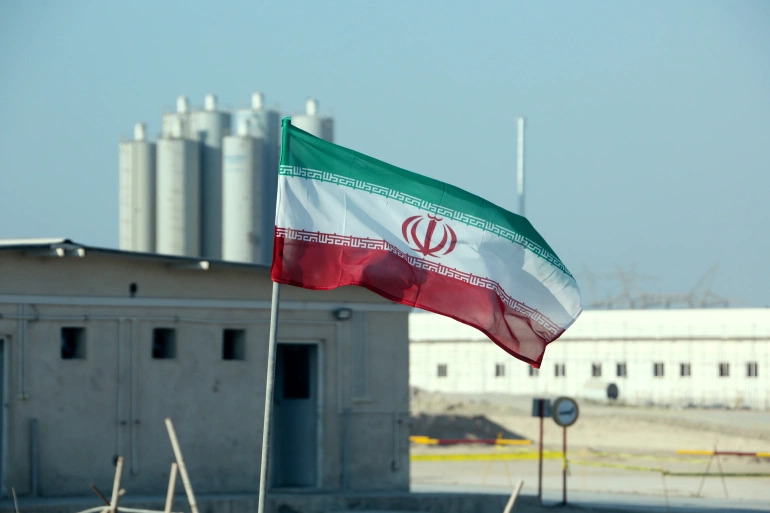The Iranian government has rejected any new negotiations or changes to the participants in the nuclear deal with world powers. The statement comes after French President Emmanuel Macron invites Suadi Arabia to the new talks.
The world powers want the Iranian government to start negotiating the nuclear deal due to Tehran’s move of breaching the limits of Uranium enrichment activity.
“The nuclear accord is a multilateral international agreement ratified by UN Security Council Resolution 2231, which is non-negotiable and parties to it are clear and unchangeable.” Iran’s Foreign Ministry spokesperson Saeed Khatibzadeh was quoted by state media as saying.
Iran uranium enrichment program:
In recent times Iran has started enriching uranium up to 20% purity. The Iranian government notified the International Atomic Energy Commission (IAEA) about uranium enrichment.
US military working on adding muscle to robots
By enriching uranium of up to 20% purity, Tehran breaches the nuclear deal enrichment limit of 4%.
Iran has started enriching uranium above the declared limits when the US government’s former president Donald Trump announced its withdrawal from the ‘Iran’s nuclear deal’ also known as the Joint Comprehensive Plan of Action (JCPOA) in May 2018. After the withdrawal from the ‘Iran’s nuclear deal’ in 2108, Washington has re-imposed the economic sanctions on Iran.
What is enriched uranium:
The uranium isotope U-235 is used in nuclear fission. It is derived by feeding uranium hexafluoride gas into centrifuges.
The uranium having a 3-5% concentration of U-235 is considered as low-enriched uranium. It is used to produce fuel for commercial nuclear power plants.
Uranium having a U-235 concentration of 20% or more is highly enriched uranium and it is used in research reactors. Uranium that is enriched 90% or more is used to produce nuclear weapons.
What is JCPOA?

In July 2015, the P5+1 (China, France, Russia, Germany, the United Kingdom, and the United States), the European Union (EU), and Iran reached a Joint Comprehensive Plan of Action (JCPOA) to ensure that Iran’s nuclear program will be exclusively peaceful.
What did JCPOA do?
JCPOA enforced Iran to enrich uranium of no more than 4% purity limits.
Iran Revolutionary Guard Corps tests ballistic missiles and drones
The JCPOA has included many other nuclear-related agreements to limit Iran’s nuclear program and enforced the government to use it only for peaceful purposes.
The plan was implemented for 15 years, starting from 2016 through 2030.
The deal contains monitoring and transparency measures that will remain in place long after that date. The International Atomic Energy Agency (IAEA) is responsible for monitoring Iran’s JCPOA implementations.
Response to Macron?
French President Emmanuel Macron said in a statement that we need to avoid the mistake of not including the other countries of the region. He stressed including Saudi Arabia in Iran’s nuclear deal negotiation.
Saeed Khatibzadeh, Iran’s Foreign Ministry spokesperson said, “If French officials are worried about their huge arms sales to Persian Gulf Arab states, they better reconsider their policies.”
He further added, “French arms along with other western weapons, not only cause the massacre of thousands of Yemenis but are also the main cause of regional instability”.
Why did US withdraw from JCPOA?
Former US President Trump withdrew Washington out of the agreement by calling it “decaying and rotten”. He said that JCPOA contains major flaws and Iran is benefiting from those flaws. Like one of the flaw he describes is the JCPOA’s lack of control over Iran’s ballistic missile program. He is also critical of Iran’s actions in Syria and in the region and called it a ‘malign behavior’.
The underground great steel wall of China
Other reasons for the US withdrawal from JCPOA may include that key US partners Saudi Arabia and Israel and most US Republican politicians opposed Iran’s nuclear deal with world powers.
“This makes it clear that, rather than an evidence-based technical objection to the agreement or its implementation, the US decision to withdraw from the JCPOA was a political measure aimed against Iran.” According to Stockholm International Peace Research Institute (SIPRI).
After-effects of US withdrawal from JCPOA:
“US withdrawal from the JCPOA risks seriously weakening trust and confidence in international institutions and arrangements that are essential parts of global security architecture”, Dan Smith, the director of SIPRI.
“In particular, the US action undermines the global effort for nuclear non-proliferation by sabotaging an important and effective anti-proliferation agreement.”
When did Iran agree to the nuclear deal?
The newly elected president Joe Biden has given a green signal of rejoining the nuclear deal. Once in his statement about returning to the agreement, he said to the New York Times” It’s going to be hard”.
CPEC, China-Pakistan Economic Corridor is a turning point for a whole region, including South Asia & Central Asia
Iranian President Hassan Rouhani said in a statement, “If newly elected President Biden “returns to the situation as it was in 2017, then so will we”.
Analysis:
After analyzing the reports and statements of the Iranian and US officials, we can say that Tehran can comply with the agreement again but without changing any conditions or renegotiations.
On the other hand, the situation for the new US administration is quite difficult because they also want to rejoin the nuclear deal but with renegotiating and changing the agreement as their key allies wanted to.
Sources:
- Article published in Reuters news
- Article published by SIPRI
- Article published in BBC news
- Article published in Aljazeera
- Information provided by US Department of State
- Info provided by Nuclear Threat Initiative (NTI)
- Article published in Wikipedia


